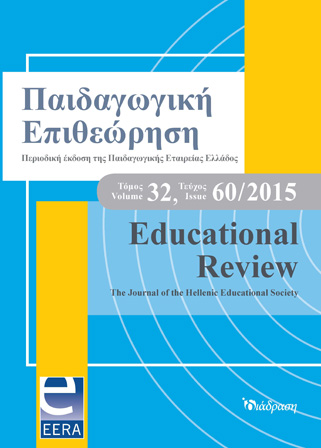Παρετυμολογία και παιδική γλώσσα
Main Article Content
Περίληψη
Folk etymology is a false hypothesis about a word’s origin/ derivation, based on phonological or semantic similarities: the speakers reanalyse, change the word form (and, sometimes, meaning), making a mistaken analogy with another word to which it is supposed to be related. The new word (innovation) seems thus more comprehensive and clear, as speakers attach to it elements which they consider as motivating the word. Little children also use to coin such words-innovations, but in most cases they are perceived by the adults as errors which have to be corrected. In this paper, we tried to emphasize that these kind of structures play a vital role in children’s’ language acquisition process and reveal the development of cognitive/ learning strategies. It is a process which indicates that even very young children are not just learners but active creators: they try to understand how the language is constructed and how it relates to the extralinguistic world.
